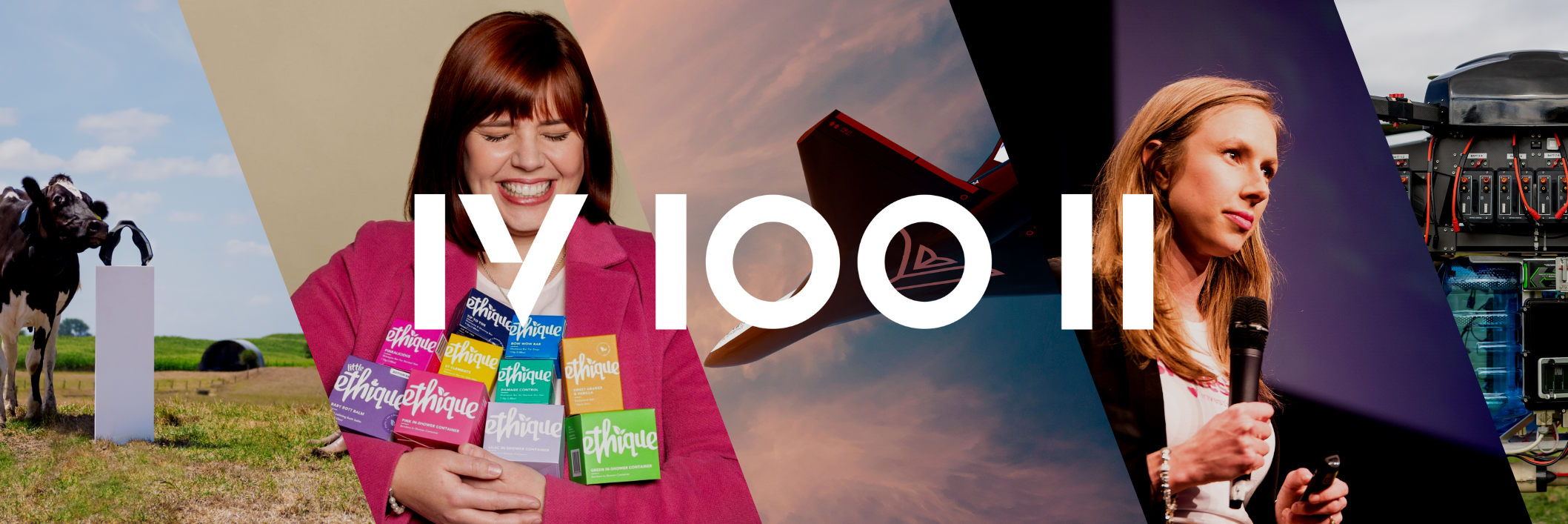Mint Innovation: Turning e-waste into gold
March 2023 by Icehouse Ventures posted in Startups, Founders, CEO
Startup Blueprint: ArchiPro, with co-founders Brittany Gribben & Milot Zeqiri
February 2023 by Steph Benseman posted in Startups, Founders, CEO
Introducing the Startup Blueprint series, our way of sharing the stories of founders and team members from some of Aotearoa's most epic and fast-growing startups. Hear about their journeys, learn from their insights, and maybe leave with a dose of inspiration.
To kick the series off we speak with Milot Zeqiri and Brittany Gribben, co-founders of ArchiPro, the all-in-one platform helping kiwis find trusted products and professionals for their building projects. They founded ArchiPro in 2014 and have scaled rapidly, becoming one of Aotearoa's fasting growing tech startups with over 186,000 registered users and followers.
Icehouse Ventures joined ArchiPro in their journey in 2021. Read on to learn more about how ArchiPro started, Brittany and Milot's learnings when it comes to scaling quickly, growing a team, and entering new markets, and what they'd do differently if given the chance.
The 2022 Startup Year in Review
February 2023 by Icehouse Ventures posted in Startups, Founders, Growth
Every year we take a look back at the year that was in our Startup Year in Review - a video that documents and celebrates the startups that have reached major milestones throughout the year.
Icehouse Ventures Community Code of Conduct
June 2022 by Icehouse Ventures posted in Community
For all the positives that come with the expansion of Aotearoa's venture ecosystem, we have growing pains. And while we pride ourselves on diversity, inclusivity, kindness and equality, the startup community must acknowledge that we have a ways to go to meet these foundational Kiwi principles.
Seed Fund III, IV's new early-stage venture capital fund: What it is and how to invest
April 2022 by Icehouse Ventures posted in Funds
For an industry that invests in innovation and disruption for a living, the venture capital ecosystem has been pretty resistant to disruption itself. There have been attempts around the edges such as rolling funds, equity crowdfunding and better CRM systems, but the core process of raising capital from investors and deploying capital into companies has remained the same since the early days of VC.
The 2021 Startup Year in Review
December 2021 by Icehouse Ventures posted in Startups, Founders, Growth
Every year we take a look back at the year that was in our Startup Year in Review - a video that documents and celebrates the startups that have reached major milestones throughout the year.
Icehouse Ventures' Brave Young Founders
September 2021 by Icehouse Ventures posted in Startups, Founders, Portfolio
Last month we held the 5th annual Icehouse Ventures First Cut Challenge - our nationwide search for New Zealand’s most promising young founders.
IVX: New VC fund investing in NZ's most promising startups
July 2021 by Robbie Paul posted in Funds
Introducing the IVX Fund
Today we announced the launch of IVX (as in Icehouse Ventures Expansion), a late-stage venture fund that will invest in 20-30 of NZ’s leading tech companies.
We have already raised over $50m to date from Simplicity, an Iwi, Hobson Wealth, Sir Stephen Tindall, and over 100 individual investors and are moving towards a $75m final close. The fund is now open for investment from new investors.
What is "late-stage venture capital?
IVX is a late-stage fund. What does that mean? Most of the capital will be deployed into companies with established and growing teams, well-developed products & services, evidence of competitive wins, five or more years in market, revenue & proven business models, and strong governance. And the most critical feature: potential for significant global growth. Example companies already in the IVX portfolio include Shuttlerock who are generating $10m+ revenue, Dawn Aerospace who have their technology commercially operating on multiple satellites in space, and Sir John Kirwan's Mentemia whose tech is used by The Warehouse, Sky, Eroad, and others.
How does IVX compare to other VC funds?
IVX leverages our unique relationships, information, and follow-on rights we have as a result of being among New Zealand’s most active early-stage investors. Our pipeline includes our 250+ startup investments, a subset of which thrive and become sought after. This simply cannot be reverse engineered. (Note IVX can also invest in startups outside of our family.)
This is not a novel model. YCombinator, a Silicon Valley-based accelerator that got its start making $20k pre-seed investments, subsequently raised a $1b “continuity” fund to invest further in its top performers like Airbnb and Dropbox. Having long-duration relationships with founders and longitudinal data on their performance is a real advantage.
IV100: Access to 100 brave Kiwi startups
December 2020 by Icehouse Ventures posted in Funds
Icehouse Ventures has launched its second index-style fund, “IV100 II”, offering unprecedented access to 100 brave New Zealand startups.
With plans to raise $10m, IV100 II will invest into 100 startups over the next three to four years. The first $5m has already been raised (the fund was initially launched in September) and ten startups have already been backed including Organic Initiative, Remotely, Refund Club, and HeartLab.
IV100 II opens up access to a portfolio of companies across a wide variety of industries and stages of their capital raising journey, from pre-seed funding to Series B expansion capital.
The new fund follows the success of the first IV100 raised in 2017, which backed its 100th company, Revolution Fibres, in March this year. It specifically co-invests in well-funded startups backed by one of its other active funds such as Tuhua Ventures or the newly launched Level Two Ventures deep tech fund.
Unique insights on the backed startups are presented to the fund’s contributors via a new Icehouse Ventures Investor Portal. Launched in July, the portal offers a simple way for investors to observe, learn and compare the progress of more than 100 companies across a variety of founders, business models, industries, growth stages, and missions.
Investors can use these insights to pick and choose the individual startups they like the most, identify opportunities where they can help the startups grow faster, and then invest further in their subsequent rounds.
CEO Robbie Paul says the IV100 funds are new territory for New Zealand: “Our second IV100 fund is enabling a magnitude step-change in diversification at an investment quantum previously reserved for individual company investments. In many ways, it is democratising the ability for Kiwis to get exposure to venture investing, an asset class where they have traditionally been left out, priced out, and jargoned out."
“In an asset class defined by one-in-one-hundred outliers, missing one outlier can be the difference between success and failure. Local investors in 2008 did not know they would be defined by wireless power or accounting software.”
He says the type of diversification offered by IV100 has been historically limited to ETFs and other listed funds. Of the startups that are part of the IV100 funds, 23 are led by female founders, 22 were started by entrepreneurs who were under 30, 21 are deep tech companies, and 18 are ‘impact” ventures striving to create tangible positive environmental or societal outcomes.
IV100 taps into Icehouse Ventures’ unique deal flow as one of the most active investors in New Zealand. The group is on track to invest more than $30m into 75 companies in 2020.
The fund is currently open for investments from eligible investors and there is an Information Pack available to interested parties.
.png)
.png)
.png)



.png)
.png)
